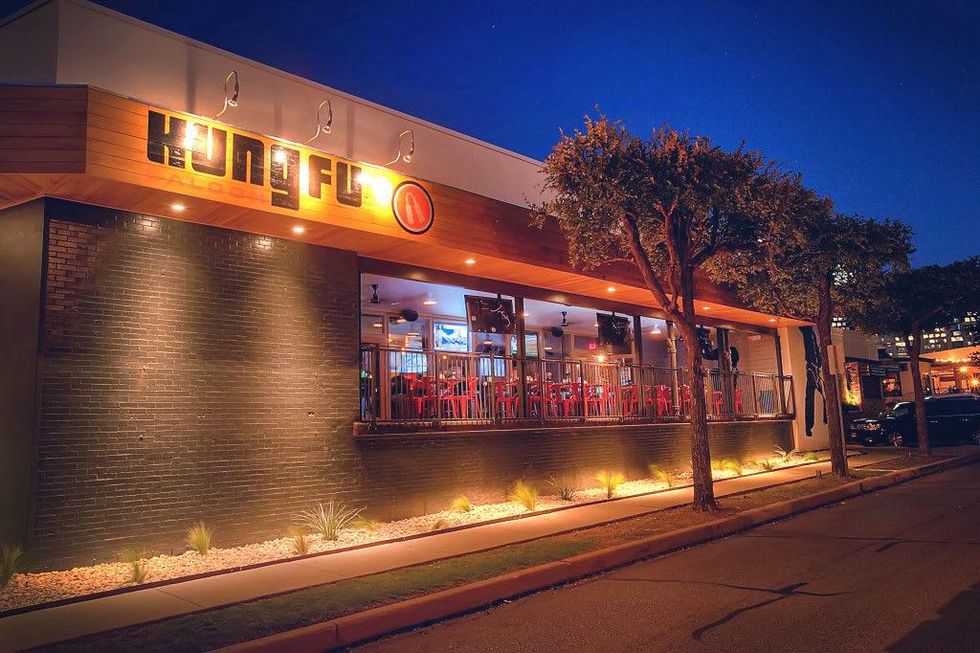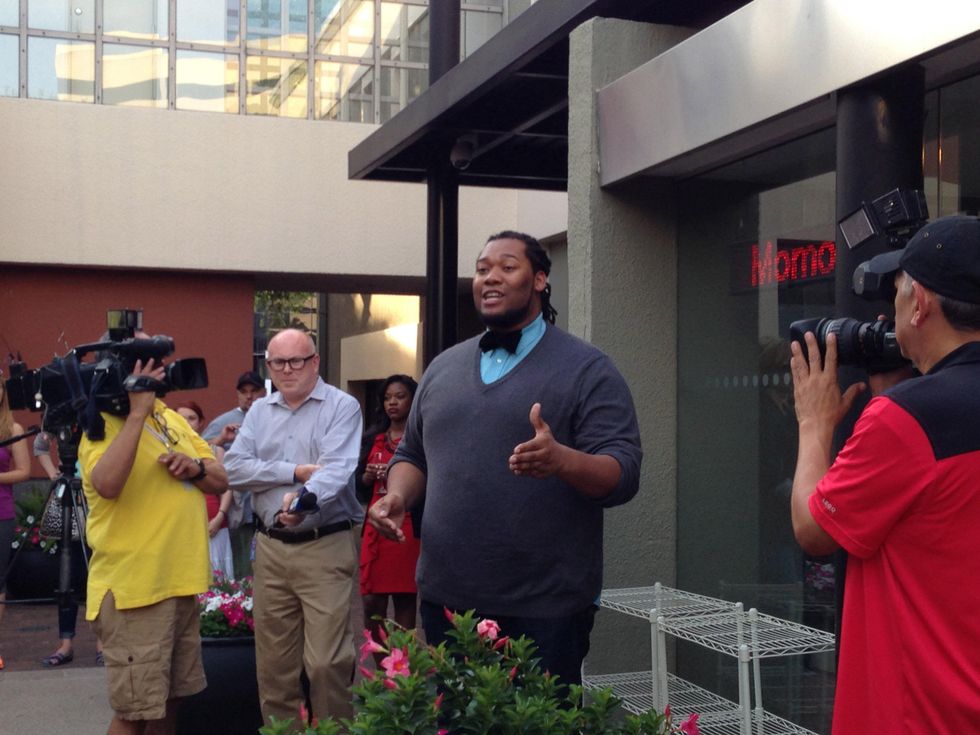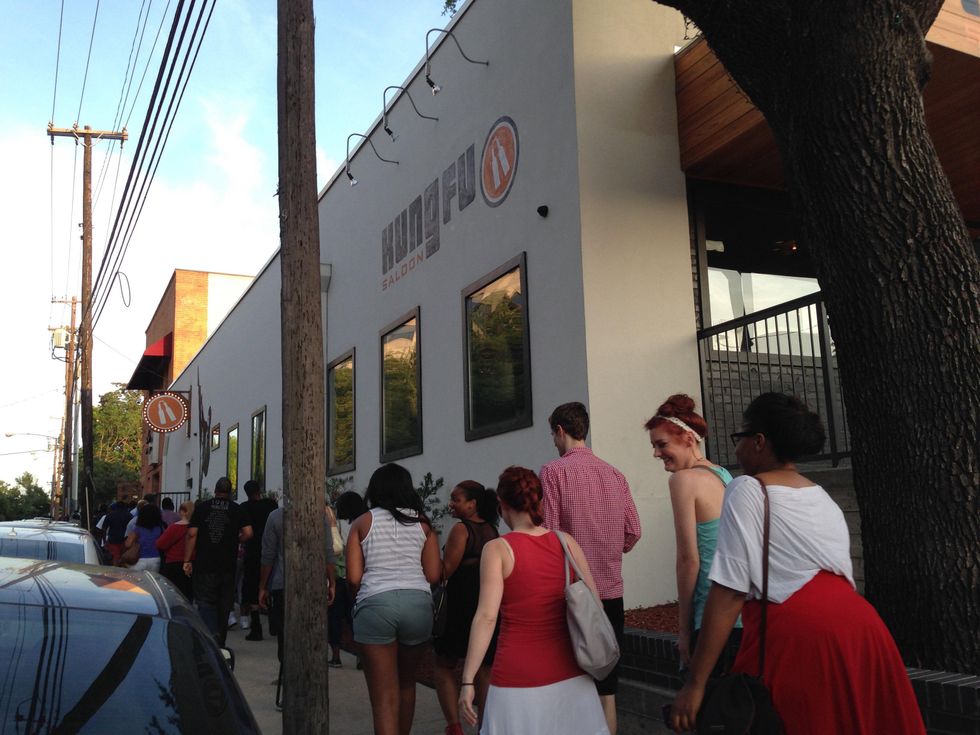Kung Fu Fighting
Kung Fu Saloon defenders emerge amid city's call for official discrimination complaints
A little-known ordinance in Dallas City Code is getting its time in the spotlight as a result of recent discrimination allegations surrounding the Uptown bar Kung Fu Saloon.
DeAndre Upshaw started a campaign to spread awareness and enforcement of local discrimination laws after he says Kung Fu Saloon turned him away, on a trumped-up dress code violation that was actually based on race.
Upshaw, a 26-year-old black man, has since held rallies on the issue and spoken to the Dallas City Council, who vowed to investigate his claims.
"Filing a complaint in and of itself doesn't mean an establishment is guilty," says Beverly Davis with the Fair Housing Office.
After receiving a number of inquiries about the discrimination laws in Dallas, the Fair Housing Office issued an official call for complaints on June 9.
Beverly Davis, assistant director of the housing department, says she has received one complaint so far and expects many more based on the volume of recent questions about the law.
Dallas City Code requires every business open to the general public to post its rules for dress, grooming and identification in writing. Following Upshaw's uproar, Kung Fu Saloon posted its dress code for the first time last month, and a former Kung Fu Saloon employee came forward with information about discriminatory policies.
But some feel that Kung Fu Saloon isn't getting a fair shake. Brandon Green says he's a regular at Kung Fu and can't understand where the accusations are coming from. Green, a gay black man, says he has always had a positive experience at the arcade bar.
"Each time I've been there, it's always been very welcoming and accommodating," Green says, adding that he was once turned away for violating the dress code by wearing a tank top. "Every place has its rules. I changed into a T-shirt, and it wasn't a problem."
Green says he's glad that Kung Fu posted its dress code, and he hopes that the issue will be resolved soon. "Forgive and forget, you know?" he says.
"The people who have had a positive experience do not cancel out my negative experience," DeAndre Upshaw says.
But Green's opinion appears to be in the minority. About 200 people attended Upshaw's first meetup in May, and dozens have posted accounts of discrimination through the hashtag #NoKungFu.
Upshaw says 50 people have responded to a Google Documents poll about discrimination at Kung Fu, and 40 of them intend to file official complaints with the city.
"This is not a case of getting upset about being turned away from a bar," he says. "It's the case of a bar systematically discriminating against people of color and the LGBT community."
Upshaw says he knows that not every person of color has been discriminated against at Kung Fu Saloon, but that's not the point. "The people who have had a positive experience do not cancel out my negative experience. It's just the idea of 'it didn't happen to me so it didn't happen to anyone,' and that's not the truth."
Davis says the final decision on whether or not to press charges comes from the City Attorney's Office. "We do a thorough review and investigation," she says. "Filing a complaint in and of itself doesn't mean an establishment is guilty."
Kung Fu Saloon spokesperson Jeff Hahn says the arcade bar is cooperating with the city's investigation. "We have met and had very productive discussions with a number of city officials," he says. "We expect our positive interactions will continue."
He says several people have reached out to him in support of Kung Fu Saloon, and he's encouraged them to make their positive experiences known to city officials as well.
Davis says the issue with Kung Fu is unusual for her office, which typically deals with about 100 complaints a year related to housing discrimination and just 10 complaints about all other kinds of discrimination. She thinks this could be because of a lack of public awareness about the city's anti-discrimination laws.
"This is the first time in recent years that we've been aware of this type of discrimination concern in areas of public accommodation," she says. "When there's not a problem, people tend not to pay as much attention to the letter of the law. When people feel as if there might be an issue of discrimination, then they actually look to see what the law is and if it's being followed."
Davis says her office has a goal of resolving complaints within 100 days of receiving them, but that timeline depends on the volume of complaints and staff availability.
"Dallas is a very inclusive city and a very welcoming city," she says. "We want all of our citizens and visitors to be able to enjoy the full array of entertainment and dining options our city has to offer.
"If there is discrimination going on, it's not something the City of Dallas will tolerate."




 MealybugTAMU
MealybugTAMU